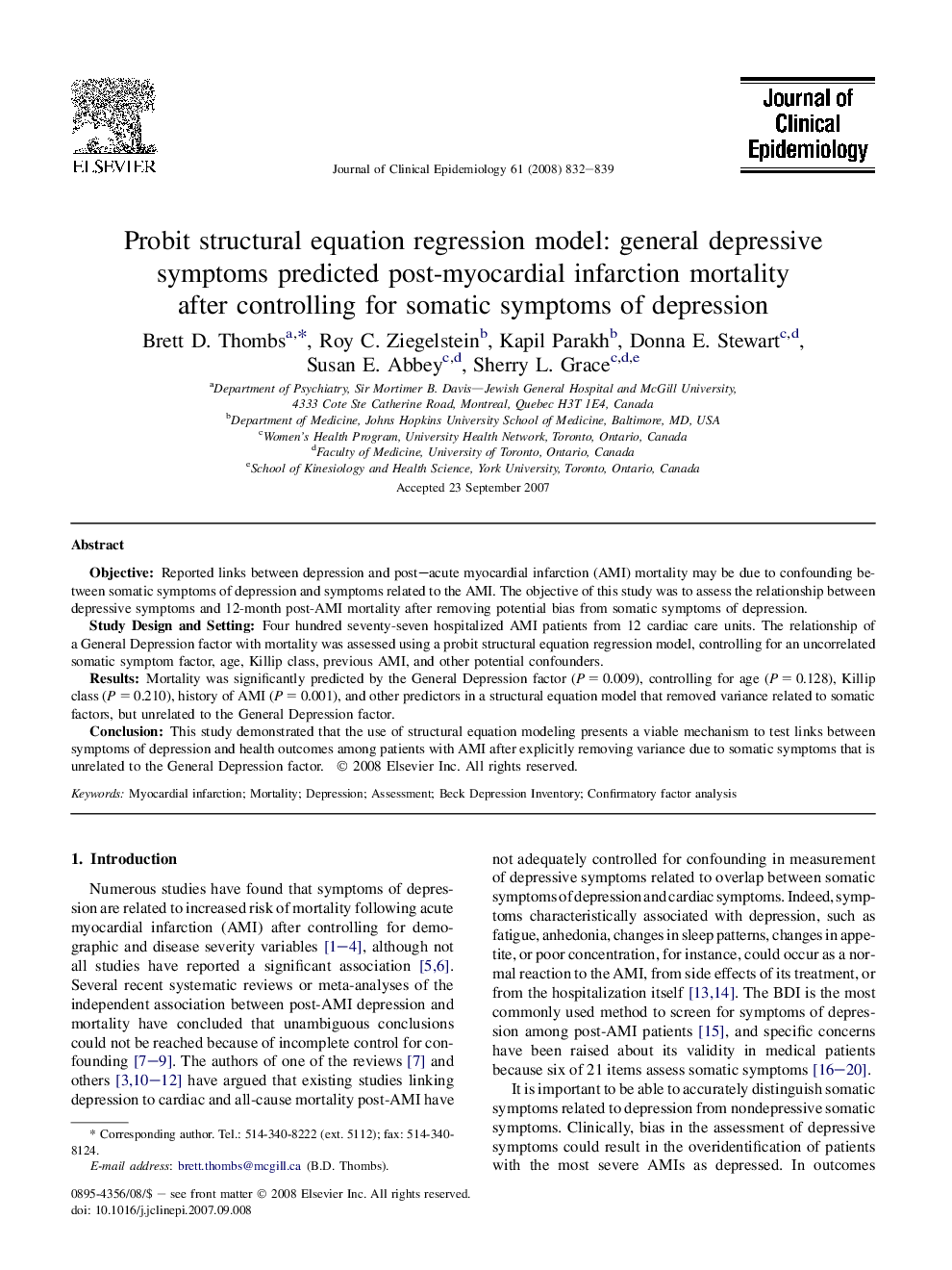| Article ID | Journal | Published Year | Pages | File Type |
|---|---|---|---|---|
| 1083618 | Journal of Clinical Epidemiology | 2008 | 8 Pages |
ObjectiveReported links between depression and post–acute myocardial infarction (AMI) mortality may be due to confounding between somatic symptoms of depression and symptoms related to the AMI. The objective of this study was to assess the relationship between depressive symptoms and 12-month post-AMI mortality after removing potential bias from somatic symptoms of depression.Study Design and SettingFour hundred seventy-seven hospitalized AMI patients from 12 cardiac care units. The relationship of a General Depression factor with mortality was assessed using a probit structural equation regression model, controlling for an uncorrelated somatic symptom factor, age, Killip class, previous AMI, and other potential confounders.ResultsMortality was significantly predicted by the General Depression factor (P = 0.009), controlling for age (P = 0.128), Killip class (P = 0.210), history of AMI (P = 0.001), and other predictors in a structural equation model that removed variance related to somatic factors, but unrelated to the General Depression factor.ConclusionThis study demonstrated that the use of structural equation modeling presents a viable mechanism to test links between symptoms of depression and health outcomes among patients with AMI after explicitly removing variance due to somatic symptoms that is unrelated to the General Depression factor.
